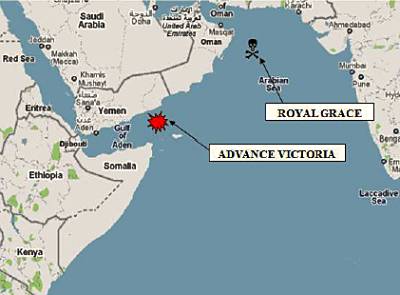WASHINGTON — Osama bin Laden’s letters urged jihadist groups to stop domestic attacks that killed Muslim civilians and focus on the United States, “our desired goal,” says a study of declassified documents captured during last year’s U.S. raid on his compound in Pakistan.
The 59-page study titled “Letters from Abbottabad: Bin Laden Sidelined?” released online today, was written by a team of researchers the Combating Terrorism Center at West Point and supplemented with reviews and support from other experts.
The center is an independent, privately funded research and educational institution at the U.S. Military Academy that informs counterterrorism policy and strategy.
The end of the Abbottabad raid was the start of a massive analytical effort, retired Army Gen. John P. Abizaid, the center’s chairman, said in the report’s foreword, adding that experts from across the intelligence community worked to exploit the captured documents.
The letters total 175 pages in the original Arabic and 197 pages in the English translation. The earliest is dated September 2006 and the latest April 2011, the authors write, adding that some letters are incomplete or undated and not all attribute their authors or indicate an addressee.
Besides bin Laden, those who appear in the letters as authors or recipients include al-Qaida leaders Atiyyatullah and Abu Yahya al-Libi; Adam Yahya Gadahn, an American al-Qaida spokesman and media advisor; Mukhtar Abu al-Zubayr, leader of Somali militant group Harakat al-Shabab al-Mujahidin; Abu Basir, or Nasir al-Wuhayshi, leader of Yemen-based al-Qaida in the Arabian Peninsula; and Hakimullah Mahsud, leader of Tehrik-e-Taliban Pakistan.
“Bin Laden’s frustration with regional jihadi groups and his seeming inability to exercise control over their actions and public statements is the most compelling story to be told on the basis of the 17 declassified documents,” the report said.
Bin Laden’s public statements focused on Muslim enemies such as corrupt Muslim rulers and their Western “overseers,” the analysis said, but “the focus of his private letters is Muslims suffering at the hands of his jihadi ‘brothers.’ ”
The late al-Qaida chieftain also had been burdened by the incompetence of affiliate terror group, the report said, “including their lack of political acumen to win public support, their media campaigns and their poorly planned operations” that killed thousands of Muslims.
The failures of al-Qaida in Iraq worried bin Laden, who urged other groups not to repeat their mistakes. Gadahn advised al-Qaida to publicly dissociate itself from the group, the report says.
Bin Laden also worried about expansion plans of al-Qaida in the Arabian Peninsula, for example warning them not to declare an Islamic state in Yemen, and about indiscriminate attacks against Muslims by Tehrik-e-Taliban Pakistan, or TTP.
Such attacks “caused Atiyyatullah and Abu Yahya al-Libi to write to TTP leader Hakimullah Mahsud to express their displeasure with the group’s ‘ideology, methods and behavior,’ ” the report said.
The al-Qaida leaders “also threatened to take public measures ‘unless we see from you serious and immediate practical and clear steps towards reforming [your ways] and dissociating yourself from these vile mistakes [that violate Islamic Law],’ ” the report added.
Bin Laden withheld recognition of a February pledge of loyalty to al-Qaida by Somali rebel movement al-Shabab, the report said, fearing “that a formal merger with al-Qaida would prevent investment and foreign aid in Somalia.”
The documents released to the Combating Terrorism Center at West Point mentioned al-Qaida in the Islamic Maghreb, the Taliban and Jaysh al-Islam, but the report says the discussions “are not substantive enough to inform an understanding of the relationship between al-Qaida’s senior leaders and these groups.”
Among the documents is an April 2011 letter from bin Laden responding to the Arab Spring, which he considered a “formidable event” in the modern history of Muslims.
“This letter,” the report says, “reflected his intended strategy of responding to the new political landscape that was emerging in the Middle East and North Africa.”
In the Arab world, bin Laden wanted al-Qaida to focus its efforts on media outreach and “guidance.” He believed that a media campaign should be launched to incite “people who have not yet revolted and exhort them to rebel against the rulers,” the report said.
But he also wanted to invest, the report said, in “educating and warning Muslim people from those [who might tempt them to settle for] half solutions, such as engaging in the secular political process by forming political parties.”
In Afghanistan, bin Laden wanted jihadis to continue the fight against the United States.
Bin Laden believed their efforts, the report said, “weakened the United States, enabling Muslims elsewhere to revolt against their rulers, no longer fearing that the United States would be in a powerful position to support these rulers.”
The documents show that al-Qaida’s relationship with Iran is one of “indirect and unpleasant negotiations over the release of detained jihadis and their families, including members of bin Laden’s family,” the report said, adding that discussion about Pakistan in the documents is “scarce and inconclusive.”
Source:
U.S. Department of Defense
Office of the Assistant Secretary of Defense (Public Affairs)

 von
von 